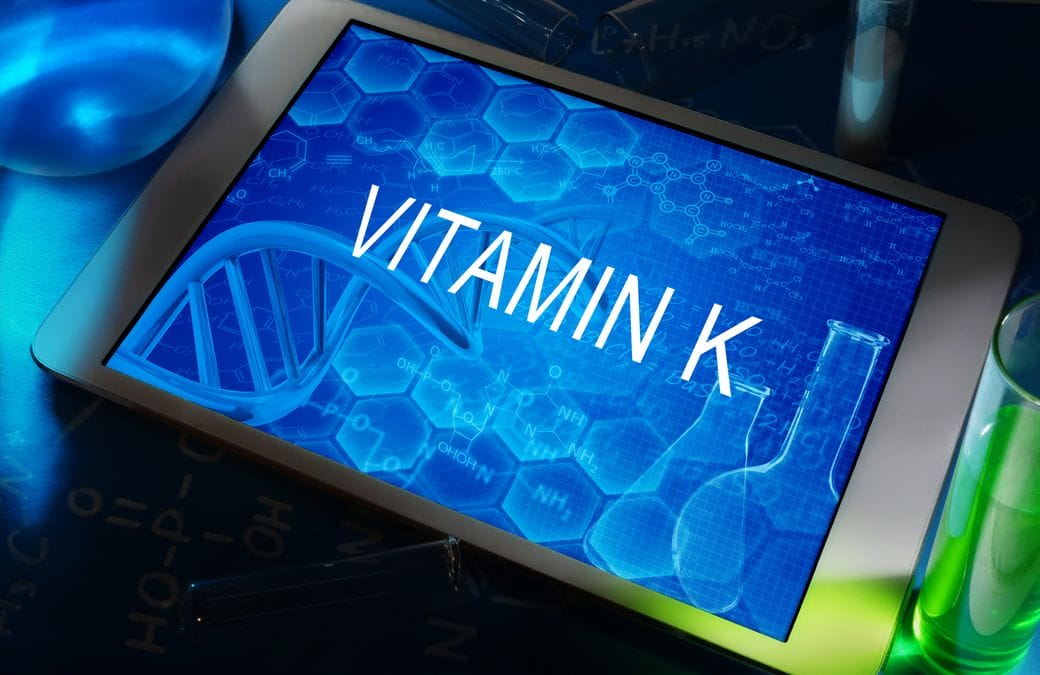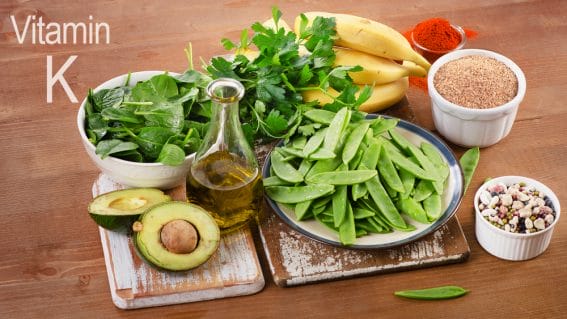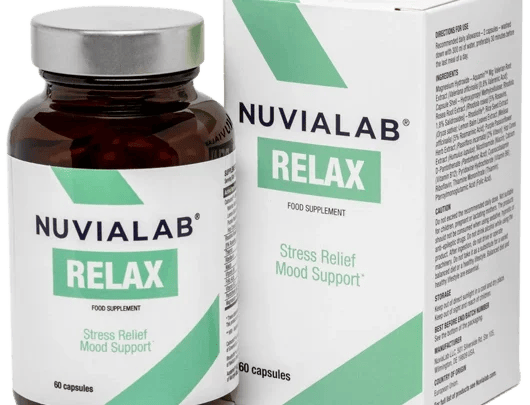
Vitamin K – another one without which our body cannot function
There are many nutrients without which we are not able to function properly. Some are produced in our body, others must be provided with food or in the form of dietary supplements. Among these compounds, vitamins have a significant role to play, and most of them we are not able to produce on our own. However, deficiencies of basic vitamins have a negative effect on health, so they should be supplemented immediately, not forgetting about such an important one as vitamin K.
Contents
What are vitamins and how do we divide them?

Before dealing with this particular representative of vitamins, we should find out what they actually are and their basic division. The scientific definition defines vitamins as organic chemical compounds, characterized by a diverse structure. As we already know, even a small amount of them is necessary for numerous metabolic processes occurring in the human body.
The first vitamin, B1, or thiamine, was synthesized by the Polish scientist Kazimierz Funk, who also created its name from a combination of two words, “X” and “X”.The first vitamin B1, or thiamine, was synthesized by the Polish scientist Kazimierz Funk, who also created its name from the combination of two words, “vitae”, meaning life, and “amina”, meaning an amino group. Gradually, other vitamins were added to thiamine and divided into two basic groups, which are now as follows:
1. water-soluble vitamins
It is this group of vitamins that must be regularly supplemented from the outside, as they are not stored in the body. Even if there is an excess, it is quickly removed with fluids such as urine. Water-soluble vitamins include:
- B vitamins: B1 (thiamine), B2 (riboflavin), B3 (niacin), B5 (pantothenic acid), B6 (pyridoxine), B7(biotin), B9 (folic acid), B12 (cobalamin), all with extremely broad health-promoting properties;
- Vitamin C, ascorbic acid, an antioxidant that helps get rid of dangerous reactive oxygen species (ROS), or free radicals, also necessary for the synthesis of collagen, the building material of connective tissue.
2) Fat-soluble vitamins
The second, no less important, group of vitamins are those that dissolve only in fats, necessary for them to be properly assimilated. Unlike the water-soluble ones, they are stored in the body, so there is a risk of overdosing. If we supply them only with food, it is relatively small, but when we additionally take vitamin supplements, it can increase significantly. The list of water-soluble vitamins is shorter and we find on it:
- vitamin A, responsible for normal vision, natural immunity and cell growth, and skin, hair and nail health, among other things;
- VitaminD, produced in the body under the influence of sunlight, without which there is no question of maintaining healthy bones, because it prevents osteoporosis, also participates in the production of red blood cells;
- vitaminE, another antioxidant, and due to the fact that it inhibits the natural aging processes, it is called the “youth vitamin”, it also reduces the risk of Alzheimera disease and Parkinson’s disease and regulates blood cholesterol levels;
- vitamin K, whose properties and effects will be presented later in this post.
What are the chemical compounds that make up vitamin K?
By vitamin K we mean a whole group of chemical compounds that our body cannot do without. It was discoveredby Henryk Dama in 1935, for which he was awarded the Nobel Prize a few years later. In nature it occurs in two fat-soluble forms, there is also a synthetic variety soluble in water, so we distinguish:
- vitamin K1, phylloquinone, supplied with food, so it is worth taking care of a properly balanced diet;
- vitamin K2, menaquinone, produced in the digestive system under the influence of such bacterial groups as Eubacterium lentum, Bacteroides fragilis or Lactococcus ssp. These are often insufficient amounts, so its deficiencies must be replenished regularly;
- vitamin K3, menadione, a synthetic derivative, and it is the one that is soluble in water, not in fats.
Where can we find the richest natural sources of vitamin K?

Since vitamin K, as well as other vitamins, is essential, we must somehow supplement its deficiencies. This can be done with the help of dietary supplements, but a better and recommended method is to provide vitamin K together with a properly selected diet. It can be found in many foods, so what we eat every day should include such vegetables as:
- romaine lettuce
- iceberg lettuce;
- cucumbers;
- celery;
- Kale;
- spinach;
- Italian cabbage;
- asparagus;
- broad beans;
- broccoli;
- Brussels sprouts;
- parsley;
- rocket.
It is also worth taking care of fruit, and among those containing the most of this valuable vitamin, it is worth distinguishing:
- avocado;
- blackberries
- kiwis;
- grapes;
- blueberries
- raspberries;
- plums;
- pears;
- mangoes;
- cranberries;
- figs;
- apples;
- strawberries;
- peaches.
Animal products, especially beef and beef liver, eggs, canola oil and olive oil, as well as cereals such as wheat and nuts are all rich in vitamin K. groatsand nuts. It is found in somewhat smaller amounts in non-fermented dairy products, such as yellow cheese.
How does vitamin K affect our health?
We already know what vitamin K is, what are its types and sources, so it’s time to learn about its properties positively affecting our health. Its action is considered by specialists as comprehensive, because it has a direct impact on:
Calcium management of the body
With the right amount of vitamin K it is possible to capture calcium, to deliver it exactly to the places where it is needed and to correctly develop bone tissue. This also helps prevent dangerous bone diseases such as osteoporosis. Interestingly, without vitamin K, calcium begins to build up in excessive amounts in blood vessels, quickly leading to calcification.
Maintaining healthy, strong bones and teeth
Vitamin K deficiencies take a toll on the skeletal system because it is involved in the production of osteoblasts. These are the cells responsible for binding calcium molecules, thus strengthening our bones. Without regular supplementation of this vitamin our bones may undergo irreversible changes, their density decreases, they become more fragile and more susceptible to fractures, which additionally take a very long time to heal. Similarly, it affects the condition of teeth, preventing damage to the enamel and stimulating the growth of new, stronger dentin.
Heart and circulatory system
Diseases of the heart and circulatory system take an increasing toll every year, and one of their causes may be vitamin K deficiency. Its appropriate level helps prevent, among others, life-threatening atherosclerosis, whose characteristic symptom is calcification of blood vessels in the lower limbs. The risk of its development is reduced by more than 30 percent, and equally dangerous coronary heart disease by more than 20 percent. In addition, vitamin K strengthens weakened vein walls, preventing their cracking, which will be particularly appreciated by people suffering from varicose veins. It also allows to maintain the correct amount of prothrombin and other compounds conditioning proper blood clotting.
Nervous system
Vitamin K supplementation also supports the work of the nervous system, taking part in the processes of production of nerve cells. At the same time, it prevents the degeneration of those already existing, which is of great importance for our memory and overall mental performance, so we can maintain them until old age.
Skin condition
The skin also needs to be cared for throughout life, in order to enjoy as long as possible its smoothness, firmness and absence of disfiguring changes such as acne, cellulite, hyperpigmentation and characteristic spider veins denoting tiny blood vessels bursting under the skin. In order to prevent all of them and eliminate the existing ones, it is necessary to use cosmetics with vitamin K and supplement deficiencies with dietary supplements containing it. Its effect on the skin comes down to:
- faster healing of redness and skin irritation, thanks to anti-inflammatory and antibacterial properties;
- even skin tone and smoothing out unevenness of the epidermis;
- reducing the appearance of spider veins by strengthening the walls of blood vessels to prevent their breakage.
What are the effects of possible vitamin K deficiency and overdose?

Vitamin K, like others, should always be provided in the recommended daily dose, which varies by gender and age and is:
Children:
- Under 1 year of age – 8 µg;
- From 1 to 3 years – 15 µg;
- 3 to 6 years – 20 µg;
- 7 to 9 years – 25 µg.
Adolescents:
- 10 to 12 years – 40 µg;
- 13 to 15 years – 50 µg;
- 16 to 18 years – 55 µg.
Adults:
- Men over 19 years of age – 65 µg;
- Women over 19 years of age – 55 µg;
- pregnant and breastfeeding women – 55 µg.
You can take supplements to adhere to the above dosages, but a better way to get it is through a properly composed diet full of the foods listed above.
Vitamin K deficiency
It occurs relatively rarely, especially in adults, but there are situations, especially disease states, that can reduce the level of vitamin K, which we can recognize by the symptoms that appear:
- bleeding from mucous membranes such as the nose;
- rapid formation of bruises on the skin, indicating weakened blood vessels, which break more easily;
- the appearance of blood in the urine;
- longer than usual blood clotting time;
- diarrhea;
- heavier menstrual periods;
- aweakening of the body’snatural immune system, resulting in more frequent bacterial infections;
- an increased risk of hemorrhagic disease in newborns, which is why it should be given to them immediately after birth;
- intracranial hemorrhage, posing a serious threat to life.
Excessive vitamin K
Which can also happen, although fortunately also very rarely. An overdose of vitamin K usually occurs when the proper amount of vitamin K is provided with food and, in addition, we start taking dietary supplements having it in their composition. In such a case one should expect the following symptoms:
- hot flushes;
- Increased sweating;
- heart pains;
- pains and problems with liver function, and a long-term excess or deficiency of vitamin K may lead to its permanent damage;
- Hemolysis, the premature breakdown of red blood cells;
- hemolytic anemia;
- serious risks to infants, including irreversible damage to brain tissue.
Sources:
- https://www.healthline.com/nutrition/vitamin-k1-vs-k2
- https://www.healthline.com/nutrition/vitamin-k2
- https://www.healthline.com/health/vitamin-k-deficiency
- https://www.healthline.com/nutrition/vitamin-a
- https://www.healthline.com/nutrition/vitamin-c-benefits
- https://www.healthline.com/health/all-about-vitamin-e
- https://www.healthline.com/health-news/5-conditions-vitamin-d-can-help-treat



